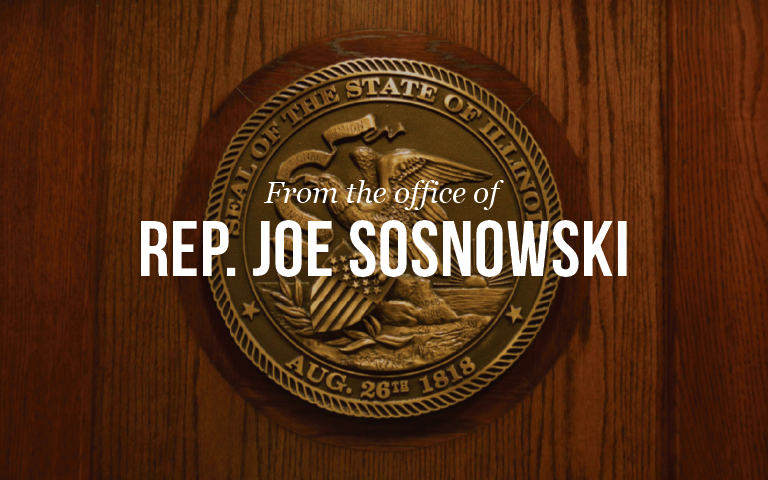I am a co-sponsor of House Resolution 1138 (HR 1138), which is a referendum allowing voters to decide whether or not the city of Chicago should be its own sovereign state. The United Kingdom experienced a similar undertaking when a successful referendum occurred allowing voters to decide if they wanted to exit the European Union (EU). The supporters of Brexit believed their values were underrepresented in government and demanded change. There is another initiative in California to separate the state into smaller units. Many downstate Illinoisans share their sentiment that there can be a better way.
In response to an opinion article written in the Rockford Register Star on June 25, 2018, I am well aware of the economic and political issues that plague our state. Legislators are tasked with many responsibilities and represent a vast constituent base of concerns. A common concern I hear from constituents is the lack of representation of their values due to the political power amassed by the city of Chicago through gerrymandering. I support mapping reforms but the entrenched Springfield leadership has stopped any efforts in that direction; therefore, as another method, I am a co-sponsor of HR 1138.
Gerrymandering is the primary reason I support HR 1138. The city of Chicago’s political influence in the map making process is astounding. For example, the 4th Congressional District, nicknamed “earmuffs,” was featured in The Economist as one of the most strangely and strategically designed congressional districts in the United States. The design is to purely entrench political influence. Politicians are picking voters rather than voters electing their representatives.
Chicago is a significant contributor to the economic engine of Illinois. However, my aspiration to enact HR 1138 lies within the crude political decisions that have permitted the city of Chicago to amass more than $63.2 billion in debt. The city’s constant and historic corruption, fiscal mismanagement, and pay to play politics have ramifications for downstate Illinois. For instance, regardless of need or demonstration, CPS automatically receives 37% of all appropriated Early Childhood Education funds. In addition, the appropriation of every full-time equivalent student at Chicago State University for FY18 was $14,246 ($7,667 more than the university average). Investigative reporting has brought to light the problematic property tax assessment process and questionable appeals process. The failure of the city’s elected leadership to assess property accurately has led to the underfunding of public schools, municipal pension liabilities, and government services.
As more of the city’s revenues are dominated by debt obligations, Chicago legislators in Springfield increase pressure on the state to fund projects specifically to benefit the city, such as $224 million to prepare the south side of Chicago for the construction of the Obama Presidential Library. Downstate Illinois is experiencing an exodus, but according to data released by the U.S. Census Bureau, the Chicago metro area is failing to attract and maintain its population. Chicago’s net loss of 80,000 people to other parts of the country ranks second-worst of all metro areas in the U.S. The state’s loss of revenue generated by people and businesses leaving Chicago and downstate Illinois harms the state’s and city’s ability to cover the escalating costs of obligations. The longer the political majority thwarts common-sense reform efforts to address escalating debt, cumbersome taxes, population loss, and corruption it is less likely that we will be able to encourage a pro-growth economy.
I hear from countless voters across downstate Illinois and the suburbs who support a separation between Chicago and the rest of the state. A separation will allow for more compromise and representation of downstate concerns versus that of a major metropolitan city lead by an entrenched political regime.
